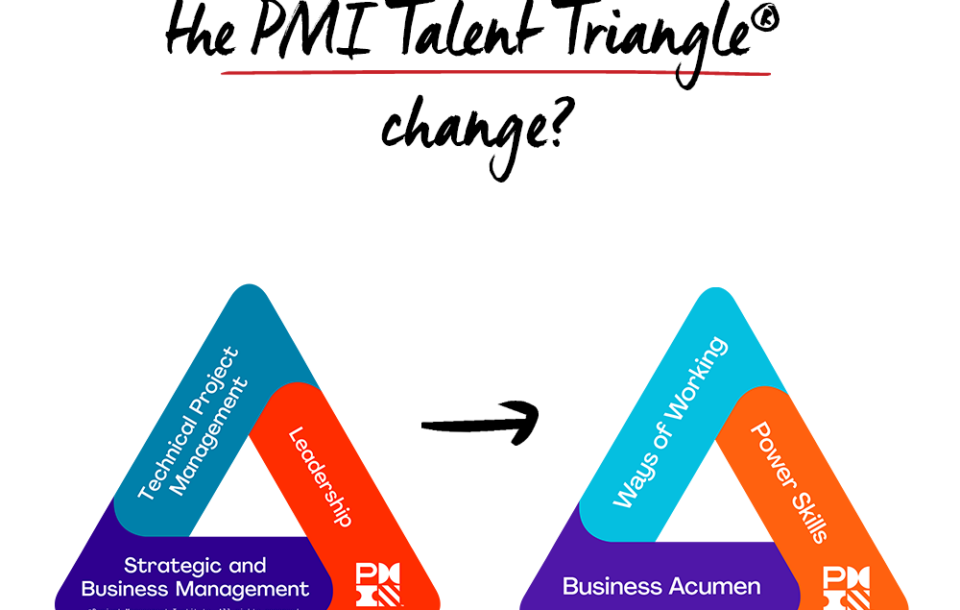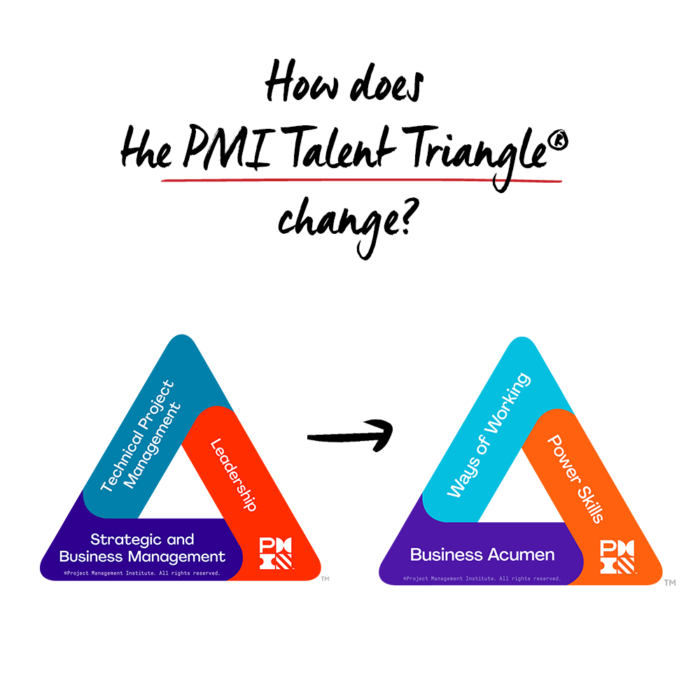
In a rapidly changing world, project professionals need to be more flexible and resourceful than ever to keep up and make an impact. PMI has always advocated for project professionals to develop a solid set of skills. Well, from now on they need a skillset that encompasses different disciplines and practices as well as other in-demand skills.
Before we get started , we will first clarify the most important question for you:
How does the new change affect me as a PMI certification holder?
The good news is: not at all. The adjustment does not affect the number of PDUs you have purchased or the number of PDUs you must purchase in each skill category, only the names of the category. You don't lose PDUs and the PDUs requirements remain the same.
Let us now take a closer look at the changes:
As project management evolves, so does PMI. The PMI Talent Triangle® was first introduced in December 2015 to represent the ideal skills that project professionals should focus on to remain successful.
The project management industry has changed a lot since 2015, therefore, a name change is not unexpected. These new category names reflect the different disciplines and practices, as well as other skills in demand.
With the new PMI Talent Triangle®:
- "Technical Project Management" is replaced by ⇒ „Ways of Working“
- „Strategic and Business Management“ is replaced by ⇒ „Business Acumen“
- „Leadership“ is replaced by ⇒ „Power Skills“
The PMI Talent Triangle changes the names of the categories:

As project managers prepare for a future that is coming faster than ever, we see the power of combining the core project management skills with these three competency categories:
- Ways of Working: Whether it is predictive, agile, design thinking or new practices yet to be developed, it is clear that there is more than one way of working today. That's why PMI encourages professionals to master as many ways of working as possible so they can apply the right technique at the right time and deliver compelling results.
- Power Skills: These interpersonal skills include collaborative leadership, communication, innovative thinking, purpose orientation and empathy. When teams have these skills, they can maintain their influence over a wide range of stakeholders - a critical component of change implementation.
- Business Acumen: Experts with business acumen understand the macro and micro influences in their organisation and industry, and have the function or area-specific knowledge to make good decisions. Experts at all levels need to be able to cultivate effective decision-making and understand how their projects fit into the bigger picture of broader business strategy and global trends.
With our trainings you collect PDUs for the successful PMP® recertification and receipt of your PMP® certificate.


